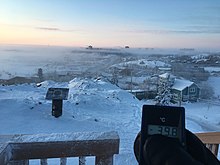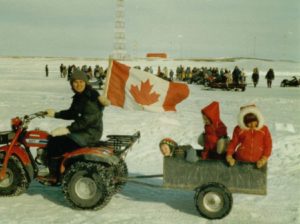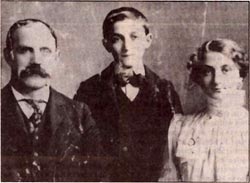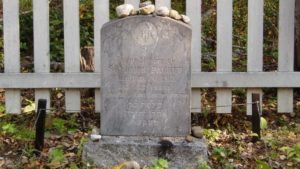The North of Canada is comprised of: Northwest Territories (Yellowknife) (40), Nunavut (Iqaluit) (15), and Yukon Territory (Whitehorse)(145).
Northwest Territories
 Yellowknife has about 30 Jews and the rest of the North West Territories have maybe a dozen.
Yellowknife has about 30 Jews and the rest of the North West Territories have maybe a dozen.
History, Jewish history, was made recently in the Arctic city of Yellow-knife, in Canada’s Northwest Territories, The event was the circumcision of Nathaniel Moll, son of David and Marianne Moll, in the home of Harold and Zelda Glick. Rabbi D. Postone of Calgary, Alberta, officiated at the circumcision.
Another first on that occasion was the presence of a minyan, the first time that at least 10 Jews were present at the same place in Yellowknife. there is only one Jewish family, the Glicks. A handful of Israelis and Canadian Jews frequent the city, holding various jobs or assignments with different levels of government.
Nunavit
There is a small but real Jewish population in the Territory. Orthodox Jews, while hardy common, are seen on the streets of Iqaluit. Lorne and Sheila Levy have held a seder in communities all over Nunavut, since first arriving in Pangnirtung more than three decades ago.
 Megan Levy-Mason, grew up in Iqaluit as one of the city’s few Jews. Levy-Mason’s sister-in-law, Shara Bernstein’s family, also lives there and she’s recently found other Jewish families in the community. Unlike Iqaluit’s Muslim community, the city’s Jewish community doesn’t have a designated space, so instead of a synagogue, individuals take turns hosting different holidays and gatherings.
Megan Levy-Mason, grew up in Iqaluit as one of the city’s few Jews. Levy-Mason’s sister-in-law, Shara Bernstein’s family, also lives there and she’s recently found other Jewish families in the community. Unlike Iqaluit’s Muslim community, the city’s Jewish community doesn’t have a designated space, so instead of a synagogue, individuals take turns hosting different holidays and gatherings.
Once the Government of Nunavut banned public gatherings, like many, the community found online solutions. “Until COVID, I had less connection to Jewish religious life even though I had the connection to community life in Iqaluit,” said Peter Driftmier. Now the rest of the Jewish world back in Calgary, as well as other places, are essentially opening their doors over Zoom.”
While tuning into services online comes with challenges like different time zones and videoconferencing logistics, like ensuring participants unmute their microphones, this option has allowed Driftmier and his partner Amy Matychuk to participate in ways not possible before. The first Shabbat since the pandemic shut down services, there was a young girl who was supposed to have a Bat Mitzvah, so we all attended. “There were around 100 people online all cheering for her in the comments section and congratulating her and that was really beautiful.
Yukon
 There is thought to be only one man of Jewish origin in Dawson City today, and approximately 25 in Whitehorse. Although, at one point during the gold rush, Karp said, there there were over 200 Jews in the Yukon. Their influence extended beyond the Klondike after they left and made some serious donations.
There is thought to be only one man of Jewish origin in Dawson City today, and approximately 25 in Whitehorse. Although, at one point during the gold rush, Karp said, there there were over 200 Jews in the Yukon. Their influence extended beyond the Klondike after they left and made some serious donations.
There is no Jewish temple in the Yukon currently, but their relatively low numbers haven’t stopped the community from getting together and organizing. Karp helps organize a yearly Passover Seder at the Whitehorse United Church that is open to the public. Around 40 people attended the last one. (Both Jewish and non-Jewish). There are maybe 13 Israelis living in Whitehorse now.
 We don’t have a Jewish community complete with rabbi, congregation and new outfits for the High Holidays. We do have children who believe the lights on other people’s homes in December are beautiful Hanukkah lights. A Jewish cemetery, Bet Chaim, containing the remains of seven unidentified people was discovered in Dawson City in 1998.
We don’t have a Jewish community complete with rabbi, congregation and new outfits for the High Holidays. We do have children who believe the lights on other people’s homes in December are beautiful Hanukkah lights. A Jewish cemetery, Bet Chaim, containing the remains of seven unidentified people was discovered in Dawson City in 1998.
Only one headstone was found, belonging to Abraham Packer, a seller of guns, knives and hardware who suffered a heart attack in 1918. It was rededicated in a ceremony conducted by a rabbi and attended by Canada’s deputy prime minister. The last person was buried there in 1930, but Karp said a Jewish Yukoner has expressed interest in being laid to rest there.